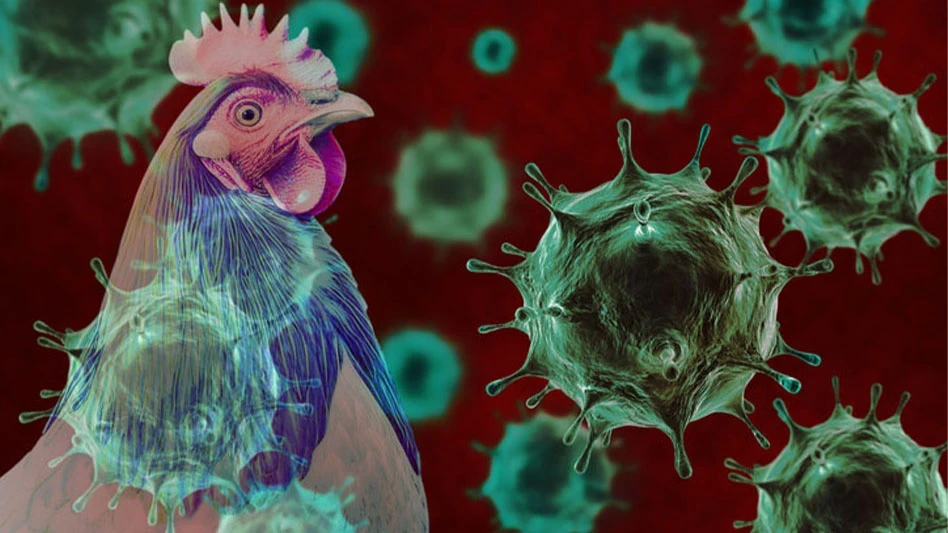

Steven Mandernach did what any political science and communication undergrad would do after graduating — he went to law school.
“That’s the next step for all of them,” he said.
But Mandernach didn’t go to just any old law school. He studied at Drake University, which had one of the first big agriculture law programs that was beginning to venture into food. In fact, his faculty advisor wrote one of the first guides on farmer markets for farmers.
“I was interested in ag policy — interested in food policy,” said Mandernach, who grew up on a farm in South Dakota.
After law school, he actually took a detour into politics, running post-2002 election reform efforts in Iowa. But his foray into politics ended there.
“It just didn’t feel like the right life,” Mandernach said. “It wasn’t what I wanted to do.”
In 2010, he became bureau chief for food and consumer safety for the Iowa Department of Inspections and Appeals before joining the Association of Food and Drug Officials as its executive director in 2018.
“I’m a public policy person,” Mandernach said. “I love policy and figuring out how to make things better so that my parents, your parents and our kids don’t get sick.”
Mandernach shares the lessons he’s learned about food safety, hiring and enjoying your career.
I want to have a job where I can end the day and still feel like I was moving in the right direction and doing something that’s impactful for me.
There were really good people that helped mentor me along the way and probably saw my interest [in certain things] before I did.
Often, people know where you belong better than you do. Be open to those opportunities — even if you think it’s a stretch.
I have quit pre-writing position descriptions when hiring. I will go in with four or five core functions that I think the person in the position will do. But then, as I find the right people that I’m interested in and the final candidate, we really write the position description based on that person.
It really makes it so that they have a job they love. They’re going to perform way better.
As long as we serve the needs of the organization and get everything done, if we can make it so that 90% of the things you do are things you’re passionate about, you’re going to be an amazing employee.
I had a lot of really good bosses, and all of them brought different things to the table. Ultimately, I learned that micromanagement is always bad. It doesn’t work for anyone.
When you take a new position, you don’t necessarily need to do it the way your predecessor did. Figure out what your strengths are in that position, then start filling in staff where your weaknesses are their strengths.
When I was in Iowa, I brought in someone that was really strong on the field operations side because I knew that wasn’t my area. I’m happy. He’s happy. We are going to perform better that way.
You can’t be afraid of failure in your career. My greatest life lessons where I learned the most were never successes. If you aren’t failing sometimes, you’re probably not actually moving forward at the rate you should be.
Managing change is really important for leaders. Be able to do that, whether it’s within your organization or external.
There are early adopters that are at the front of change, the middle is the huge part of the curve where more people are jumping on, and then you have the resisters at the end. If you do a good job managing change on the front end, your resistant laggers almost don’t exist.
I think Frank Yiannis is exactly right. It’s all about behavior and behavior change.
Developing people so that they can be the next round of leaders is important. When someone leaves to take another position, people can feel like it’s a personal affront to them. That means they’ve grown, and they’re ready to go do something different.
Your goal as a leader in an organization is to make the people around you even better — better than you are.
WANT MORE?
Enter your email to receive our newsletters.

Explore the July August 2022 Issue
Check out more from this issue and find your next story to read.
Latest from Quality Assurance & Food Safety
- Seeding The Future Global Food System Challenge Finalists Revealed
- TraceGains Launches AI-Powered Intelligent Document Processing to Improve Ingredient Safety, Compliance
- IFT Virtual Workshop on Food Fraud Prevention to Address Supply Chain Disruptions
- Penn State Course Covers Fundamentals of Food Science
- Joint FAO/WHO Expert Committee on Food Additives Seeks Experts
- FDA Reschedules Webinar on Updated ‘Healthy’ Claim
- Thousands More Laid Off at FDA, CDC in HHS Restructuring
- USDA Extends Deadline on Request for Information for Poultry Quality Standards





